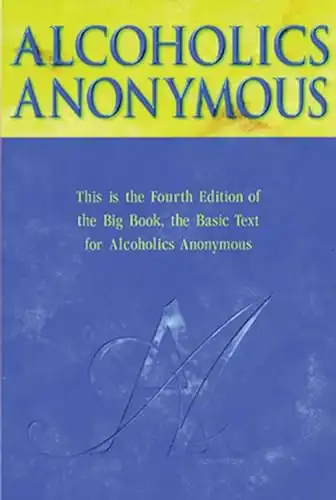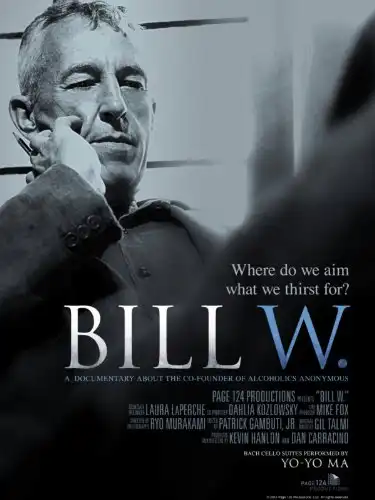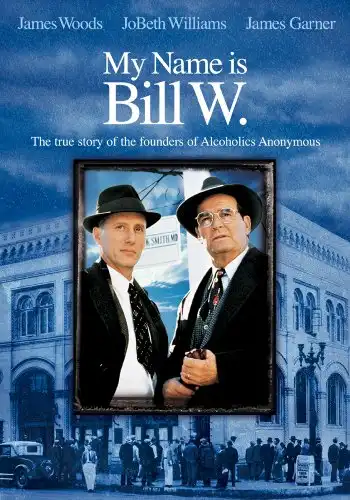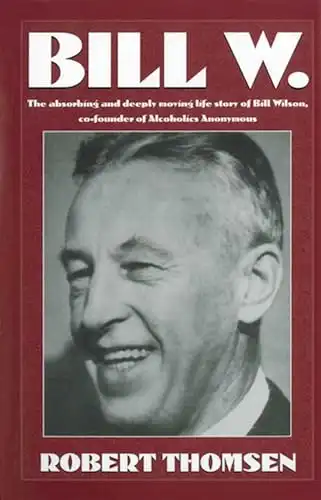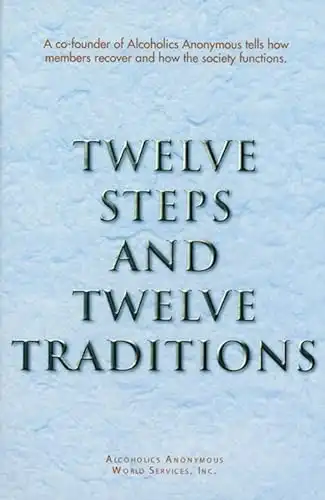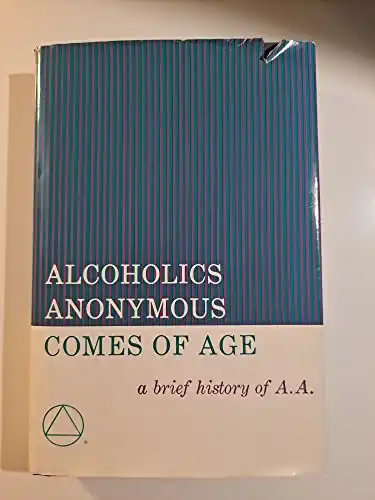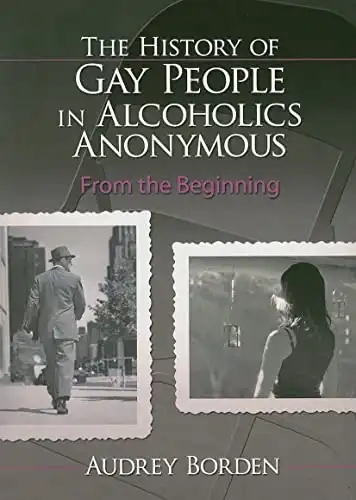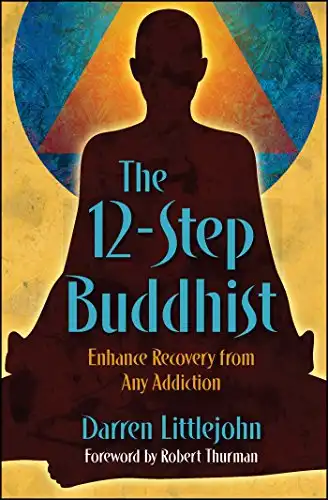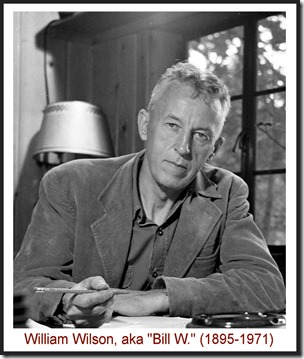 Today, there are many organizations that use a “12-step program” to help people deal with some type of addiction or other problems.
Today, there are many organizations that use a “12-step program” to help people deal with some type of addiction or other problems.
In addition to alcohol and drug-related groups, there are groups with 12-step programs for everything from food addicts and sex addicts to debtors, “underearners,” and workaholics.
Of course, all of the current organizations that have “anonymous” in their names and teach some type of 12-step program are based on Alcoholics Anonymous and “The 12 Steps” in that venerable organization’s famed guide to overcoming alcoholism — officially titled Alcoholics Anonymous, but generally referred to as “the Big Book.”
The organization Alcoholics Anonymous was founded in 1935 by two men who had struggled with alcoholism in their own lives: William “Bill” Wilson and Dr. Robert “Bob” Smith.
The official publication and copyright date for the what is called the first edition of the Big Book, as recorded by the U.S. Copyright Office, is April 10, 1939.
Most of the first edition was written by Wilson, under the name “Bill W,” though he used things written and said to him by other members.
The basic text of the book was originally compiled by Wilson in 1938. Prior to the official “first edition,” copies were printed by AA members using a multilith duplicating machine.
In part, Wilson’s use of the pen name Bill W. reflected AA’s approach of allowing people to come to meetings and avoid embarrassment by not using their full names.
This is the basis for the “anonymous” in Alcoholics Anonymous and led to the now familiar self-introduction: “My name is X, and I’m an alcoholic” (a line included in later editions of the Big Book, but not the first edition.)
It also reflected the belief of Wilson and Dr. Smith that AA organizers should not gain personal profit or publicity for their work on behalf of the organization.
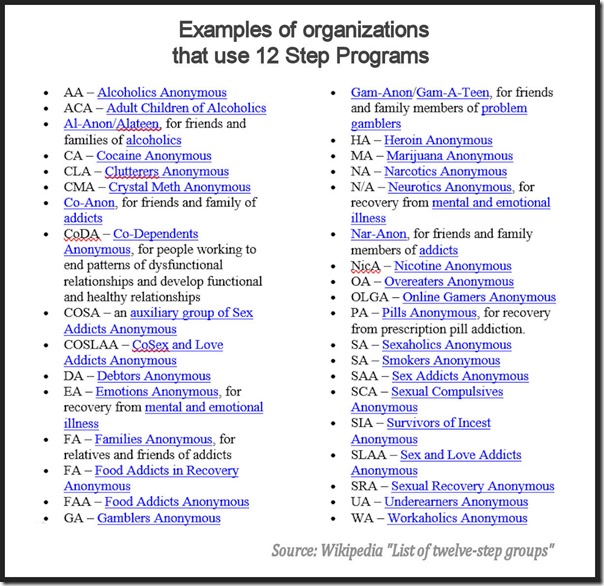 The “12 Steps” Wilson included in the Big Book, with input from other early AA members, are the origin of the widely-used approach and term “12-step program.”
The “12 Steps” Wilson included in the Big Book, with input from other early AA members, are the origin of the widely-used approach and term “12-step program.”
The basic gist of a few of the AA’s 12 Steps — such as making a list of people you’ve harmed and asking their forgiveness — is familiar to most people.
But the actual words of the 12 Steps in the Big Book are rarely cited as quotations or included in collections of quotes.
Arguably, they should be.
Alcoholics Anonymous is one of the best-selling books of all time, having sold more than 30 million copies since 1939. And, the 12 Steps have remained essentially the same in the three later editions of the Big Book.
In the first edition, the steps appear in Chapter 5: “How it Works.”
Wilson describes them as the process he and others early members of Alcoholics Anonymous used to recover from alcoholism and suggests them as the model for all AA members. He wrote:
“Here are the steps we took, which are suggested as a program of recovery:
1. We admitted we were powerless over alcohol, that our lives had become unmanageable.
2. Came to believe that a Power greater than ourselves could restore us to sanity.
3. Made a decision to turn our will and our lives over to the care of God as we understood Him.
4. Made a searching and fearless moral inventory of ourselves.
5. Admitted to God, to ourselves, and to another human being the exact nature of our wrongs.
6. Were entirely ready to have God remove all these defects of character.
7. Humbly asked Him to remove our shortcomings.
8. Made a list of all persons we had harmed, and became willing to make amends to them all.
9. Made direct amends to such people wherever possible, except when to do so would injure them or others.
10. Continued to take personal inventory and when we were wrong promptly admitted it.
11. Sought through prayer and meditation to improve our conscious contact with God as we understood Him, praying only for knowledge of His will for us and the power to carry that out.
12. Having had a spiritual awakening as the result of these steps, we tried to carry this message to alcoholics, and to practice these principles in all our affairs.”
The religious aspect of the 12 Steps were a matter of controversy from the start, since some AA members were atheists or agnostics.
That aspect is still criticized and off-putting to some people.
But, whether you’re a believer or not, you may find the Big Book’s explanation of the role of spirituality in helping alcoholics recover interesting.
Chapter 4, titled “We Agnostics” says: “If a mere code of morals or a better philosophy of life were sufficient to overcome alcoholism, many of us would have recovered long ago. But we found that such codes and philosophies did not save us, no matter how much we tried. We could wish to be moral, we could wish to be philosophically comforted, in fact, we could will these things with all our might, but the needed power wasn’t there…We had to find a power by which we could live, and it had to be a Power greater than ourselves.”
The Big Book’s view of that higher Power is more expansive than Christian Fundamentalism.
“We discovered we did not need to consider another’s conception of God,” Wilson explained. “Our own conception, however inadequate, was sufficient to make the approach and to effect a contact with Him. As soon as we admitted the possible existence of a Creative Intelligence, a Spirit of the Universe underlying the totality of things, we began to be possessed of a new sense of power and direction, provided we took other simple steps.”
You may disagree with those views.
But it’s hard to deny the good that Alcoholics Anonymous and its 12 Steps have done for millions of people struggling with alcoholism.
* * * * * * * * * *
Comments? Corrections? Post them on my Famous Quotations Facebook page or send me an email.
Related reading and viewing…


